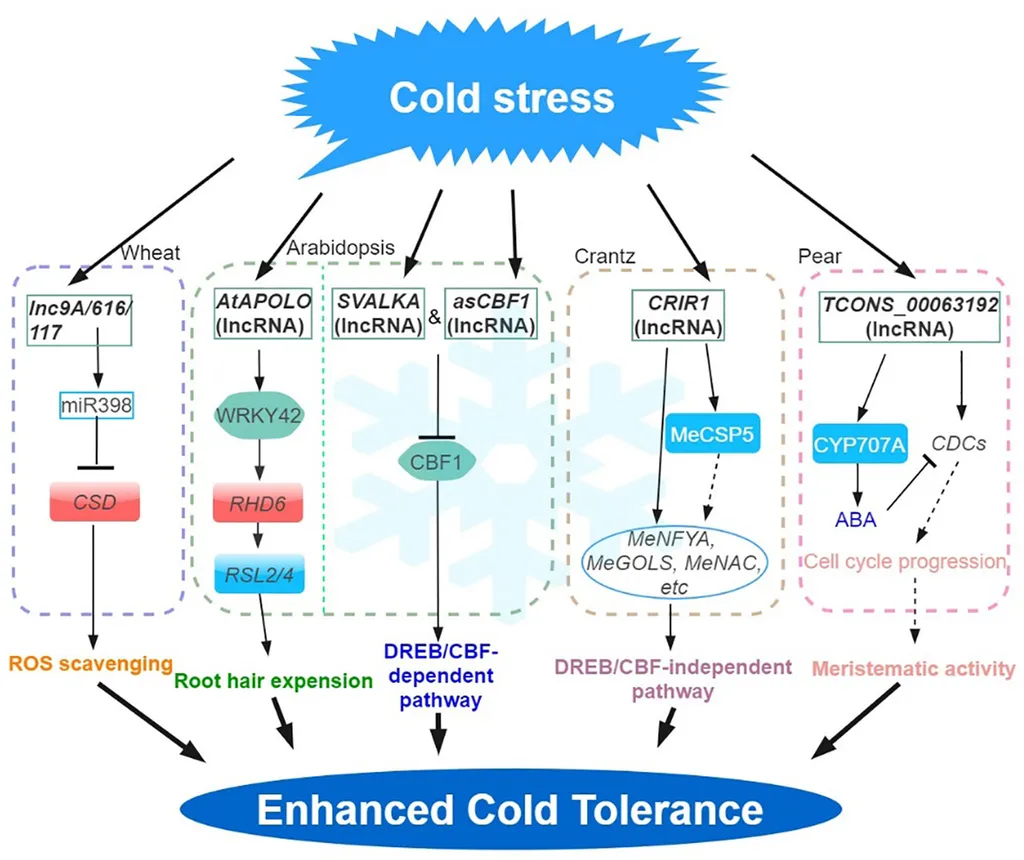In the ever-evolving landscape of plant science, a groundbreaking study has shed new light on how plants adapt to environmental stresses, offering promising avenues for agricultural innovation. Published in *Frontiers in Plant Science*, the research led by Elisa De Meo from the PlantLab at the Sant’Anna School of Advanced Studies in Pisa, Italy, explores the intricate role of RNA interference (RNAi) in shaping stress responses in *Arabidopsis thaliana*, a model organism widely used in plant biology.
RNAi is a regulatory mechanism that allows plants to fine-tune their gene expression in response to environmental challenges. Small RNAs (sRNAs), including microRNAs (miRNAs) and small interfering RNAs (siRNAs), play a pivotal role in this process. These tiny molecules guide the silencing of genes involved in stress responses, enabling plants to adapt dynamically to their surroundings. What makes this study particularly compelling is the discovery that sRNAs can move beyond the cell of origin, enhancing the plant’s overall adaptability through systemic signaling.
“Our findings reveal that sRNAs are not just local actors but also systemic messengers, coordinating stress responses across the plant,” De Meo explained. This systemic movement of sRNAs suggests a sophisticated communication network within plants, allowing them to respond more effectively to environmental stresses such as drought, salinity, and temperature fluctuations.
Central to this regulatory network are ARGONAUTE (AGO) proteins, which bind to sRNAs and guide them to their target genes. The study highlights the diverse roles of AGO proteins and their stress-regulated expression, contributing to the finely tuned responses observed in plants. “AGO proteins are like conductors of an orchestra, ensuring that the right genes are silenced at the right time to optimize the plant’s response to stress,” De Meo added.
The implications of this research for the agriculture sector are substantial. Understanding how RNAi mechanisms contribute to stress adaptation could lead to the development of crops with enhanced resilience to environmental challenges. This, in turn, could improve crop yields and food security, particularly in regions prone to climate-related stresses.
Emerging technologies such as high-resolution sRNA sequencing and single-cell transcriptomics are providing researchers with unprecedented insights into the spatial and temporal dynamics of RNAi regulation. These tools are enabling a deeper understanding of how plants orchestrate their responses to stress, paving the way for targeted interventions that could revolutionize agriculture.
As we look to the future, the study’s findings open up exciting possibilities for leveraging RNAi-based technologies to develop stress-resistant crops. By harnessing the power of sRNAs and AGO proteins, scientists may be able to engineer plants that are better equipped to withstand the challenges posed by a changing climate. This research not only advances our fundamental understanding of plant biology but also holds the potential to transform agricultural practices, ensuring a more sustainable and resilient food supply for years to come.
Published in *Frontiers in Plant Science*, the study was led by Elisa De Meo from the PlantLab at the Sant’Anna School of Advanced Studies in Pisa, Italy.

